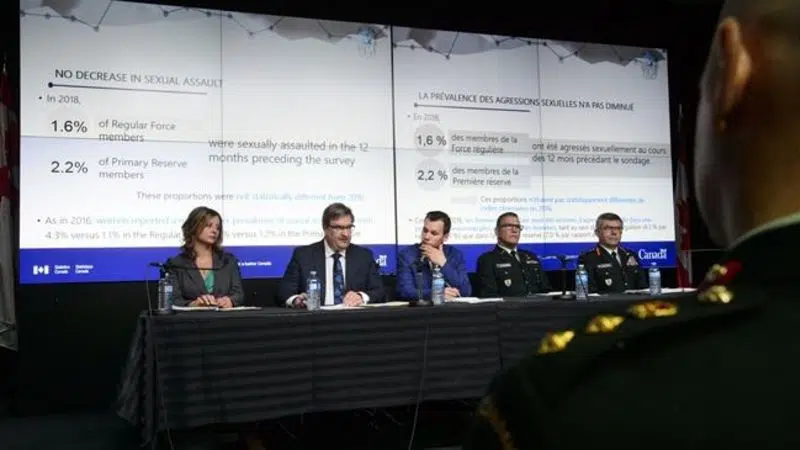
Survey finds minimal progress in military’s fight against sexual misconduct
OTTAWA — Statistics Canada has offered a sobering assessment of the Canadian Forces’ four-year war on sexual misconduct, suggesting in a new report Wednesday that the military has made only minimal progress on several fronts.
The report was the result of a survey of about 36,000 service members conducted by Statistics Canada for the military last fall, the second such survey after an inaugural run in 2016.
On the surface, the survey yielded several reasons for optimism: fewer military members reported having witnessed or experienced sexualized or discriminatory behaviour over the previous 12 months than in the first survey.


